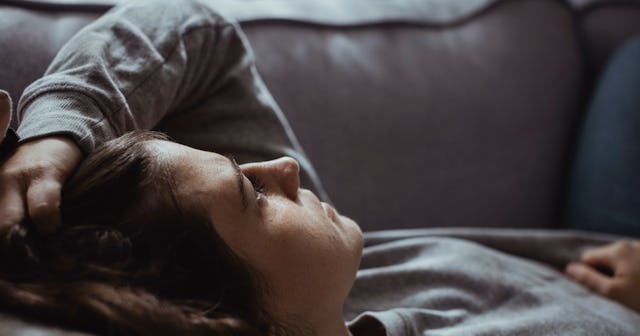Women Are Hit Worse Than Men By Pandemic Anxiety, Surprising No One

A new study shows how devastating the pandemic has been for our mental health — and especially for women
There’s not really any question that the pandemic has been terrible for people’s mental health. No one has had a good year-and-a-half (and counting). We’re all coping with constant uncertainty, fear, and death on a mass scale. But a new study published in The Lancet shows that the mental health crisis that has emerged from 2020 might be even worse than we imagined — especially for women.
Global cases of both depression and anxiety increased by over 25 percent during the pandemic — 28 percent for depression and 26 percent for anxiety. But in the case of women, the trend was so much worse — 35 million women were newly diagnosed with major depressive disorder, compared to just 18 million men; while 52 million women were diagnosed with anxiety, compared to less than half as many men at 24 million.
The study is the first to take a global look at the mental health impact of the pandemic, and what it found is alarming, to say the least.
Lancet
“The COVID-19 pandemic has exacerbated many existing inequalities, and social determinants of mental health,” Alize Ferrari, co-author of the study, said. “Sadly, for numerous reasons, women were always more likely to be worse affected by the social and economic consequences of the pandemic.”
It’s really no wonder that women are facing an even larger mental health crisis than men. Previous studies have shown how the pandemic has affected women, especially working mothers who have had to juggle work, childcare, and homeschooling. McKinsey’s 2020 Women in the Workplace report showed that that year, one in four working women was considering dropping out of their career. For moms, that number was one in three. That same study showed that working from home during the pandemic affected the mental health of mothers more than it did fathers, likely because the burden of balancing childcare duties while working from home is often unfairly put on women. The Women in the Workplace report showed that 75 percent of women said they were spending more hours per day on household responsibilities during the pandemic than they did before.
“Our findings highlight an urgent need to strengthen mental health systems in order to address the growing burden of major depressive disorder and anxiety disorders worldwide,” Dr. Damian Santomauro, lead author of the new study on mental health, said. “Even before the pandemic, mental health care systems in most countries have historically been under-resourced and disorganized in their service delivery. Meeting the added demand for mental health services due to COVID-19 will be challenging, but taking no action should not be an option.”